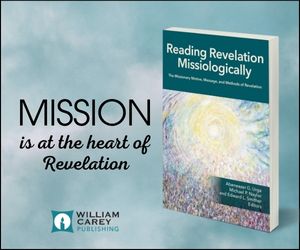EMQ » January–April 2024 » Volume 60 Issue 1

Summary: Does God’s faithfulness end when our usefulness runs out? While most Christians would deny this, the way we tell the story of God’s mission reveals otherwise. This places a significant question mark over God’s faithfulness, and it threatens our spiritual formation and our evangelistic integrity.
By Collin Cornell
Most Christians would answer a hearty and immediate, NO. It is spiritually and missiologically fundamental to affirm the exact opposite: the One who calls us is faithful (1 Thessalonians 5:24). God does not treat us as disposable. Scripture instead celebrates God’s enduring faithfulness to those whom the world casts away: the old and gray-haired (Isaiah 46:4; cf. Psalm 71:12–16); the lowly (1 Corinthians 1:26–31); those who break faith with God (2 Timothy 2:13). “Though father and mother forsake me, the LORD will receive me” (Psalm 27:10, BSB).
The truth that God is faithful even when usefulness runs out is precious to Christian mission workers. Retired missionaries must lean on it when their lives of service conclude. Families and friends of people with disabilities cherish them quite apart from societal standards of productivity. Practitioners of creation care respect the inherent value of lands regardless of their profitability.[i] As Christians, we invite outsiders to experience the steadfast love of God in Christ because they can rely upon it for their whole lives, without fear of being cast out or discarded.
And yet for as fundamental as this truth is to our Christian faith and our mission practice, the way we commonly tell God’s mission story is out of alignment. We have let a strong element of disposability shape our understanding of the biblical narrative. Even unintentionally, we have placed a significant question mark over God’s faithfulness, and this threatens our spiritual formation and our evangelistic integrity.
Two moments in our usual telling of the biblical mission story that put usefulness in bold theological relief. The “standard canonical narrative” instrumentalizes the election of Israel and the incarnation of the Son of God, and in closing it proposes a different, non-instrumental approach.[ii] A better telling of God’s mission story understands both these events not as means to an end, but rather as God’s goal(s) from eternity. God’s mission in Scripture is not mainly a salvage operation but an (interrupted) plan for fellowship to draw close to his creatures.
Member-Only Access
Evangelical Missions Quarterly (EMQ) is available to Missio Nexus members as a member-only benefit or as a digital subscription.
Please login to gain access or join Missio Nexus!








